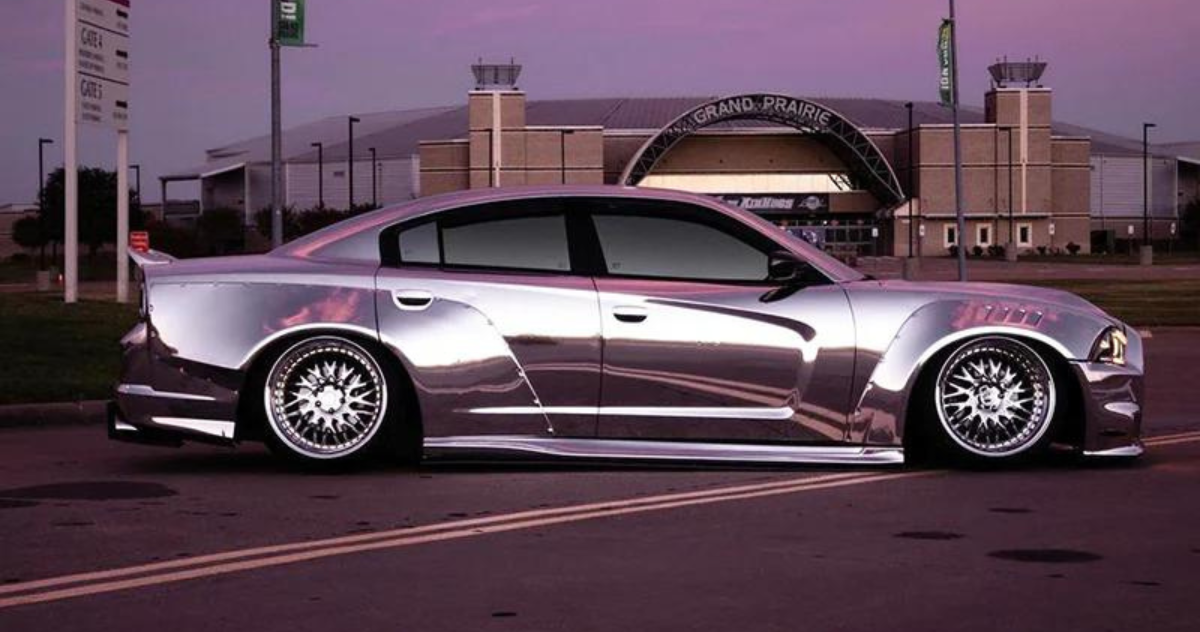New York New York (Transatlantic Today) —Car wrapping has emerged as an increasingly popular trend, transforming ordinary vehicles into eye-catching works of art. From everyday citizens to celebrities, the allure of car wraps has gripped the automobile world. However, as the fascination with this automotive art form grows, a pertinent question arises: are car wraps illegal?
Car wrapping is legal in most places, but the world of regulations is complex and multifaceted. Local laws can introduce additional stipulations that govern vehicle wraps’ usage, content, and extent. It’s crucial to have a comprehensive understanding of these laws to avoid the risk of fines for your unique vehicular design. In this article, we’ll explore the legal landscape of car wrapping, shedding light on the dos and don’ts while addressing whether car wraps are illegal.
Are Car Wraps Illegal?
Car wraps, typically constructed from vinyl, offer a captivating means to promote businesses or express one’s individuality. Yet, the acceptability of this practice varies from one place to another. Some major urban centers, like San Francisco and New York, have stringent local regulations governing the use of car wraps. Before embarking on a car wrapping venture, consider the following legal requirements to ensure you’re on the right side of the law:
1. Content and Permission
The design of car wraps on your vehicle’s exterior should avoid obscenity or offensive imagery. It’s essential to maintain a level of decorum in your design choices. Moreover, if you intend to wrap someone else’s car, it is imperative to secure their explicit permission. Respecting ownership and consent is fundamental.
2. Lights and Signals
When wrapping your car, take care not to obstruct any essential vehicle lights necessary for safe daily driving. This includes headlights, indicator lights, brake lights, and rear lights. These lights are crucial for road safety, and their obstruction could lead to accidents. Compliance with this rule ensures that your vehicle remains visible and safe.
3. Branding and Signage
Your car wraps should not obscure any pre-existing branding or signage that is already present on the vehicle. For instance, if your vehicle bears a company logo, it should remain visible after wrapping. The same principle applies to registration plates, which must always be clear and legible. This maintains the integrity of identification on the road.
4. Secure Attachment
Proper installation is crucial. The wraps must be securely attached to the vehicle’s surface, ensuring they won’t peel off in high winds or with regular use of your vehicle. Using inappropriate adhesives, like double-sided tape, for car wraps is discouraged unless the design explicitly calls for exterior application. Secure attachment guarantees the longevity and effectiveness of your car wraps.
5. Reflective Panels for Trucks
Safety requirements often mandate the presence of reflective panels for larger vehicles, such as trucks. These panels are designed to alert other road users to the vehicle’s length or position, especially during nighttime travel. However, covering these panels with wraps can diminish the vehicle’s visibility, rendering them unsafe for such vehicles. In the interest of road safety, leaving these reflective panels unobstructed is crucial.
Legal Frameworks and the Department of Motor Vehicles (DMV)
The Department of Motor Vehicles (DMV) and other regulatory bodies play a pivotal role in shaping the legal framework for car wrapping. While specific regulations may vary from state to state, the DMV generally sets the tone for car wrapping guidelines. To avoid any legal entanglements, it’s advisable to consult your local DMV office and familiarize yourself with the regulations specific to your region.
In some instances, state DMVs may prescribe minimum distance laws governing the proximity of car wraps to other components of your vehicle. These laws are in place to prevent any interference with the safe operation of your vehicle. Always abide by these distance requirements to ensure a legal and safe car wrapping endeavor.
Final Words: Are Car Wraps Illegal?
Car wrapping is generally legal, but adhering to specific rules is vital. From content considerations to the safe maintenance of lights and branding, these rules aim to strike a balance between self-expression and road safety. Additionally, it is crucial to be aware of any local regulations that may impose additional restrictions.
Remember that the legality of car wrapping can vary from place to place, with some locales having stricter regulations than others. To ensure a smooth and legal car wrapping experience, consult with your local DMV or regulatory authority to clearly understand the rules and requirements that apply to your region.
So, are car wraps illegal? Not when done within the boundaries of the law. With a good understanding of the regulations and a creative yet responsible approach to car wrapping, you can transform your vehicle into a rolling work of art that turns heads while keeping you on the right side of the law.


























